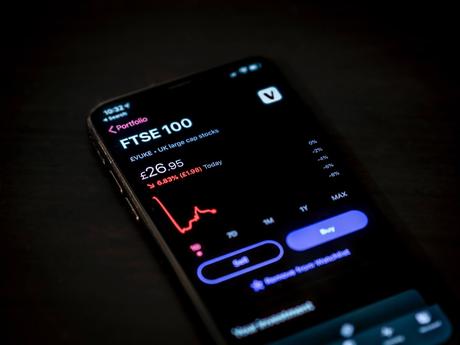Most of us will face difficult financial shortage at some point in our trading and our lives, that’s the reality.
When this happens, it’s not always clear where to turn for assistance. In some cases, though, a cash advance may be the best alternative since it is faster and simpler to receive than most other options.
Depending on the specifics of the situation, you may not have the time to go for other sources of funds that require more time and documentation. Also, in some situations that would simply not pay off - you know will get more liquidity soon enough anyway and waiting would make you lose the opportunity.
Be aware though that despite their benefits, cash advances may have considerable disadvantages. As a result, it’s critical to understand what cash advances are and how much they might cost you.
What Exactly Are Cash Advances?
A cash advance is a short-term loan that delivers you cash, expecting that you will be able to repay the debt very soon. They are often handy in the short term through the best cash advance app, for example, but they may all be pricey in terms of fees and rates over time.
To answer the question “what are cash advances?” more exactly is difficult since they may take several shapes. Credit card cash advances, payday loans, and small business loans are all frequent possibilities. Each of them works in a slightly different manner.
How do cash advances work?
In simple terms, a cash advance is a loan obtained by utilizing the available amount on your credit card. Instead of using your credit card to purchase a product or service, you are borrowing cash against your credit limit.
Credit card issuers, however, do not consider these two sorts of purchases equally. That’s why you should not jump into a cash advance carelessly.
-
Grace period
If you use your credit card to purchase an item or service, the credit card company will charge you the purchase interest rate mentioned in your contract
That is commonly labeled as the purchase APR, or annual percentage rate. And, if your credit card has a grace period, you won’t be charged interest on that transaction until your payment is due.
That means you may never have to pay interest on your purchases if your card has a grace period and you pay your balance in whole and on time each month.
-
Extra fees
Cash advances, on the other hand, often do not have grace periods. As soon as you withdraw the advance amount, interest will start to accrue on it.
Additionally, your credit card company will almost definitely charge you a processing fee and a higher interest rate for cash advances than it does for ordinary transactions.
Cash Advance Varieties
-
Cash Advances on Credit Cards
A credit card cash advance is a function that many credit cards provide. Essentially a short-term loan, the borrower may access cash or a cash equivalent up to 20% or 30% of the card’s authorized credit limit. You may withdraw up to 50% of your available credit limit on certain credit cards.
-
Cash Advances from Merchants and OTC providers
Merchant cash advances allow companies to get the financing they need. Merchant cash advances are calculated based on historical sales or future sales predictions. This is analogous to the necessity for a pay stub for payday loans.
Cash advances are a reasonable and simple option for small businesses to get the funds they need for their operating expenses, the whole procedure frequently takes just a few days or less.
Similarly, you may get a cash advance option for your bulk crypto purchases with some of the independent OTC platforms. It is not a standard option however, not every OTC trader will get a cash advance approved.
-
Payday Advances
Payday loans are another short-term option that is quite infamous and for good reasons.
They provide you with the ability to borrow money from your firm in the future. Most payday lenders will request evidence of income, such as a prior pay stub. Funds may be accessible both physically and digitally.
Payday loans, as opposed to cash advances, may be exceedingly predatory and should be avoided.

Fees and Costs
If you are considering a cash advance, there are the fees to consider. The fees might be quite substantial depending on the conditions of the advance. As a result, before obtaining one, you should be informed of all of the repercussions.
The APR for credit card cash advances, for example, may be greater than the APR for balance transfers and purchases. Then, in addition to the increased APR, you’ll have to pay a cash advance processing charge.
In general, cash advance costs usually are 3% to 5% of the amount borrowed. Thus, a $500 cash advance would incur a cost of $15 to $25 on average.
For a business or a trader with a strategy, that surcharge still might pay off, if they repay the loan soon.
The Benefits and Drawbacks of Cash Advances
Benefits
- No collateral is needed for instant access to unsecured money;
- No underwriting or credit checks are necessary, making it simple to get.
Drawbacks
- APR and fees that are quite high;
- There is no grace period—credit card cash advances begin charging interest on the first day.
Do Cash Advances Ruin Your Credit?
A cash advance has no direct influence on your credit or credit score, but it may have an indirect impact in a variety of ways.
The catch with these loans in the USA is that the loan interest rates vary greatly by state. Aside from states that have outright forbidden payday lending, several have imposed rate limitations on short-term loans. Consumers in states without such limitations, on the other hand, may find up paying through the roof. Payday loan data by state reveal that Texas, Utah, and Idaho (652%-664%), as well as Mississippi, North Dakota, and Montana, have usually high APRs.
A cash advance often has a hefty interest rate. Your credit score may suffer if you are unable to pay your obligations. Furthermore, if the cash advance exceeds the credit limit on your card, your credit score may suffer. Even if the debt is paid down, your credit report will reflect the highest reported balance, and other prospective lenders will see that you were above the limit at one time, which may affect your ability to get new credit.
When You Should Consider Getting a Cash Advance
If you truly need money for a low-risk expense that will generate money, a cash advance might be a good and speedy method to get it. However, the following actions may be beneficial:
- Check your account conditions to find out the APR for cash advances, as well as any additional fees that may apply;
- Borrow as little as possible and pay it off as quickly as you can.
Final words
When used seldom and with good reason, cash advances are not problematic. They are just a short-term solutions to address exigencies. If you find that you often need a cash loan to cover your operating costs, budgeting adjustments and money management are the real solution.

